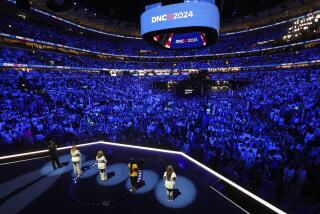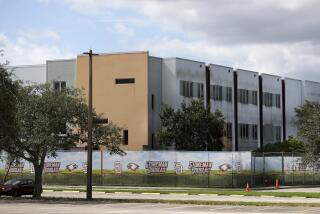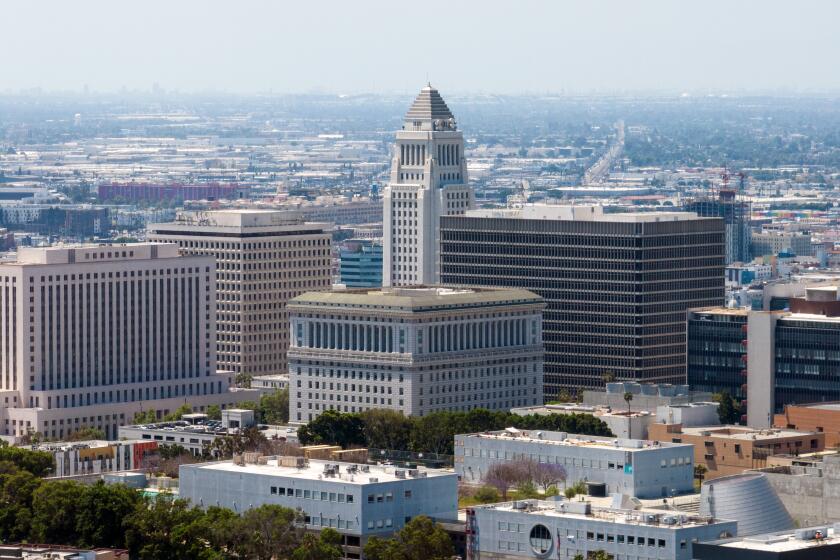Column: Palisades High students chronicle ‘an epidemic level’ of young people dying from gun violence
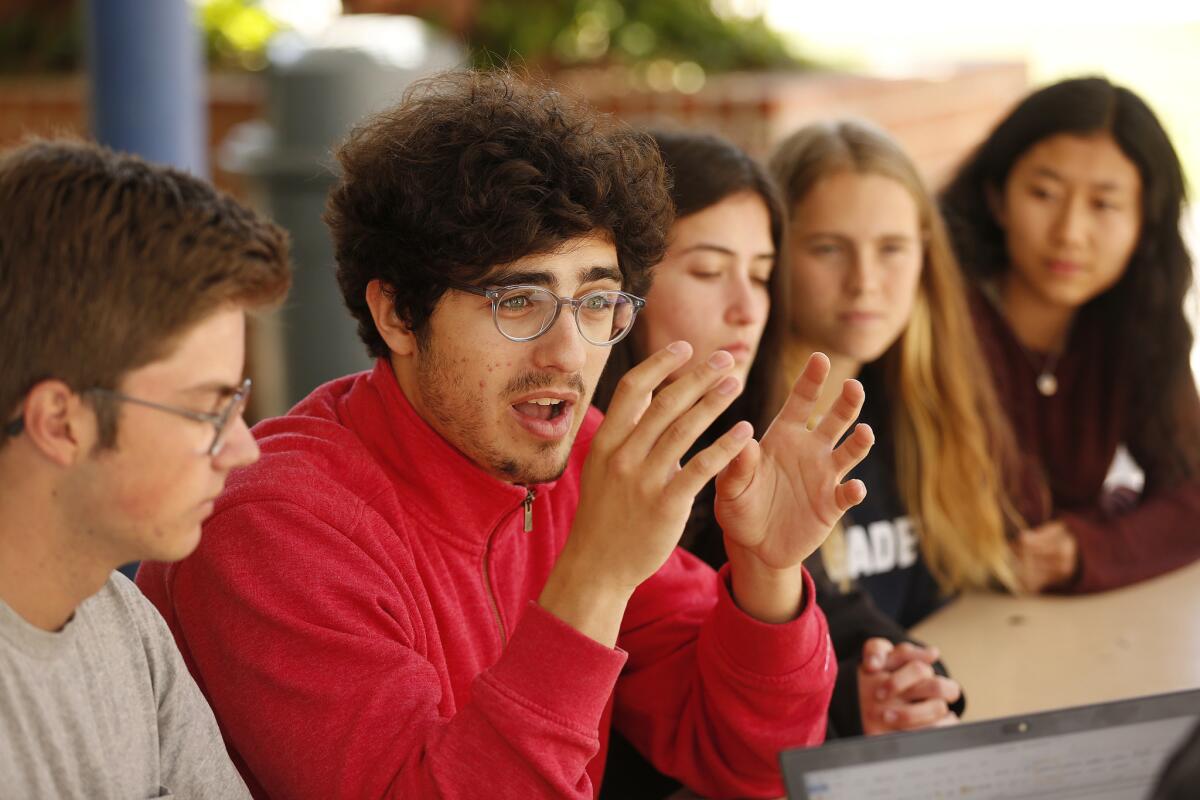
They were killed by acquaintances, by enemies, by accident.
Some were riding their bikes, some were running for cover, some didn’t see the bullets coming.
In a single year, nearly 1,200 Americans 18 and younger were victims of gun violence. The carnage has become so numbingly commonplace that most victims perish without much notice, and our collective silence is broken only by the next hail of gunfire.
At Palisades Charter High School, a small group of students wanted to do something about that. So for months, as part of a national team of teen journalists, they researched media accounts, dug through police reports and scanned social media to find details about young people killed by guns in the 365 days after the Parkland, Fla., high school shooting on Valentine’s Day 2018 that left 17 students and staff members dead.
The Pali students contributed 70 of the 1,200 obituaries in the project.
“The aim … was to show that the problem isn’t just school shootings. It’s every day. It’s constant,” said Pali senior Joe Meyerson, who led the school’s team of a dozen journalism students.
Meyerson, who is headed to Boston University in the fall to study journalism, said students set out to distill the essence of who the victims were, in mini-profiles, rather than focus only on their deaths. The resulting sketches were often powerful, posted like epitaphs in the national cemetery of lost children.
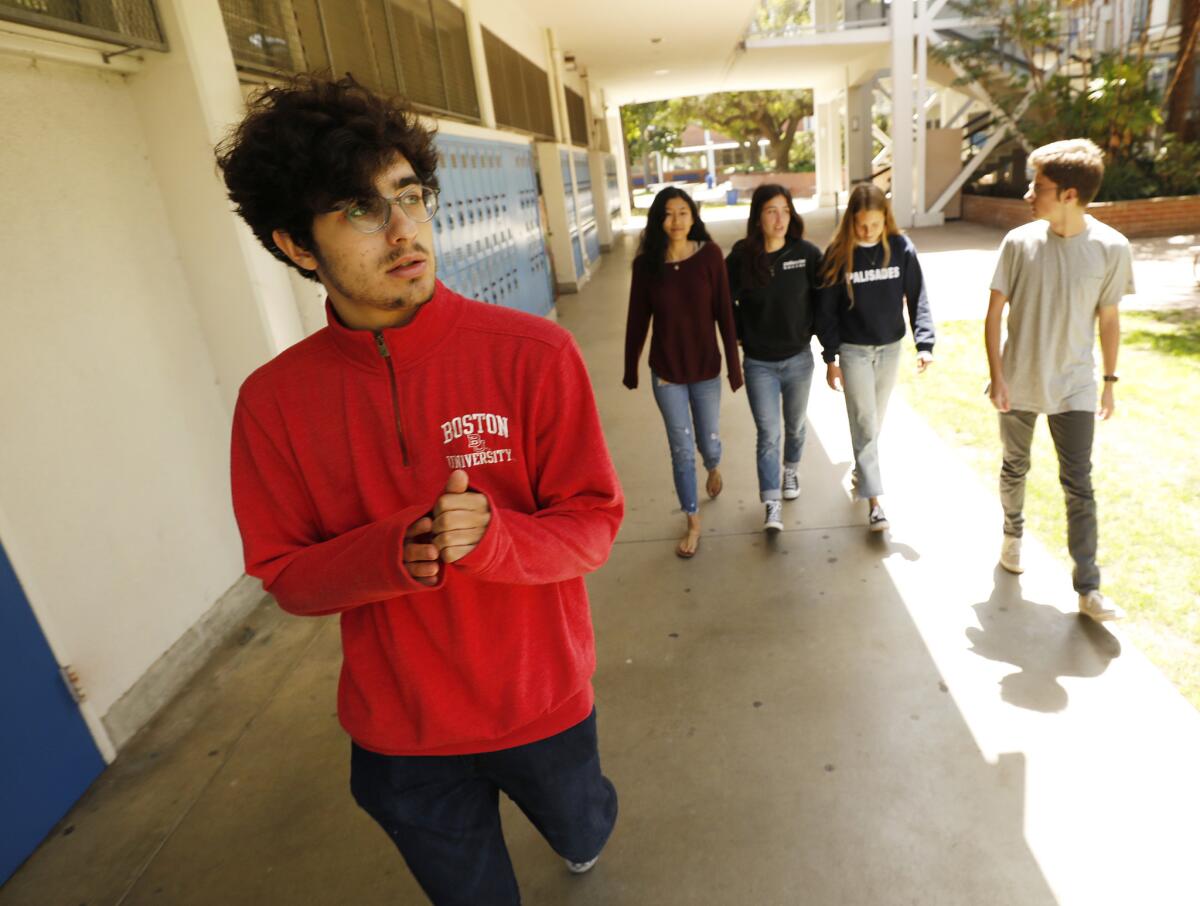
Here’s an example of one in which Meyerson shared a byline with student Samantha Woolley:
“As a sixth grade student at Keefe Avenue School, her essay about gun violence afflicting her neighborhood won third place in a Martin Luther King, Jr. essay contest.
“She was ‘everything this world was not,’ her mother said. ‘My baby was not violent. My baby did not like violence.’
“Sandra Parks, 13, was shot and killed by a stray bullet that shattered her bedroom window on Nov. 19, 2018, in Milwaukee, Wisconsin. Two men were charged, one with first-degree reckless homicide. The last sentence of Sandra’s essay: ‘We must fight until our truths stretch to the end of the world.’”
When I met at the Pacific Palisades campus with Meyerson and classmates Zade Mullin, Ava Kerkorian, Sarah Bentley and Judy Zhang, they seemed as if they’d been as affected by their work as the audience they hoped to reach.
“It makes you realize it could happen to anyone.”
— Sarah Bentley, Palisades High School student
The amount of bloodshed was not a revelation for the students, but as they got to know more about those who died, the losses became more personal.
“What really hit me hard was … seeing how they died and the number of people like, under a year old, or just beginning middle school or high school,” Bentley said. “It makes you realize it could happen to anyone.”
Though Pali Charter sits in a safe, affluent, low-crime neighborhood, the students’ reporting connected them with people in places where violence is routine, gangs are prevalent and victims are often children of color. Zhang wrote about a Los Angeles teen who wanted to get dinner at a particular fast-food restaurant one night, but was talked into going to another instead. “She’s standing there and a car drives by and just peppers her in the back with bullets,” said Zhang, who read the police report on the homicide. “I remember thinking it was literally a case of the wrong place, wrong time.”
Zhang’s obit noted that the victim wore golden hoop earrings and bonded with her after-school counselors at Santee Education Complex, just south of the 10 Freeway. Zhang’s obit ended with this:
“Hannah Ronyae’ Bell, 15, was shot outside a burger restaurant in South Los Angeles on April 27, 2018. According to her brother, her last words were, ‘I got shot, Mama. It burns.’”
Surrounded: Killings near school, and the students left behind »
The one that haunts Mullin involved a gas station shooting in Philadelphia. In researching the death, he came upon grainy surveillance video of 15-year-old Rasul Benson’s last moments.
“You could see the flash from the gun and see kids scramble,” Mullin said.
In January, 17-year-old Michael Bardlett was shot and killed in Georgia. At Pali Charter, Meyerson and classmate Ariana Abtahi were piecing together the obit but needed more information. One strength of the student reporters, Meyerson said, was knowing how to fish social media sites. On Instagram, they found a phone number for Bardlett’s mother.
Meyerson dialed and the mother picked up.
“At first she was very skeptical. Her son had died just three weeks ago. I explained who I was and why I wanted to speak to her and we had a 20-minute conversation about her son,” Meyerson said. “It was heartwarming stuff only a mother would know.”
For Kerkorian, getting so close to the details sharpened her sense of outrage.
“It’s hard not to be in favor of gun control when you’re reporting about all these kids,” she said. “They’re kids just like my friends and me, who do the same things we do. They could have had bright futures, and that just made me … angry at our legislators … and it made me want to get even more involved.”
“It’s an epidemic level of destruction.”
— Joe Meyerson, Palisades High School senior
Beatrice Motamedi oversaw the students’ work as director of Global Student Square, which developed the curriculum for the project and partners with students and news organizations to explore violence, global warming and the plight of refugees. The “Since Parkland” project was created by the Trace, a nonprofit newsroom focused on gun violence, in partnership with the Miami Herald. “Can’t say enough about how talented and smart these kids are,” Motamedi said.
They are also determined to play a role in addressing a societal problem that has raged too long.
As Meyerson put it, the shouting of political differences on gun rights and gun control can’t be allowed to drown out the cries of the children being slaughtered.
“It’s an epidemic level of destruction,” he said.
And like any good journalist, he believes there is no more powerful form of commentary, and no truer appeal to conscience, than to tell stories that shake our souls.
Get more of Steve Lopez’s work and follow him on Twitter @LATstevelopez
More to Read
Sign up for Essential California
The most important California stories and recommendations in your inbox every morning.
You may occasionally receive promotional content from the Los Angeles Times.


